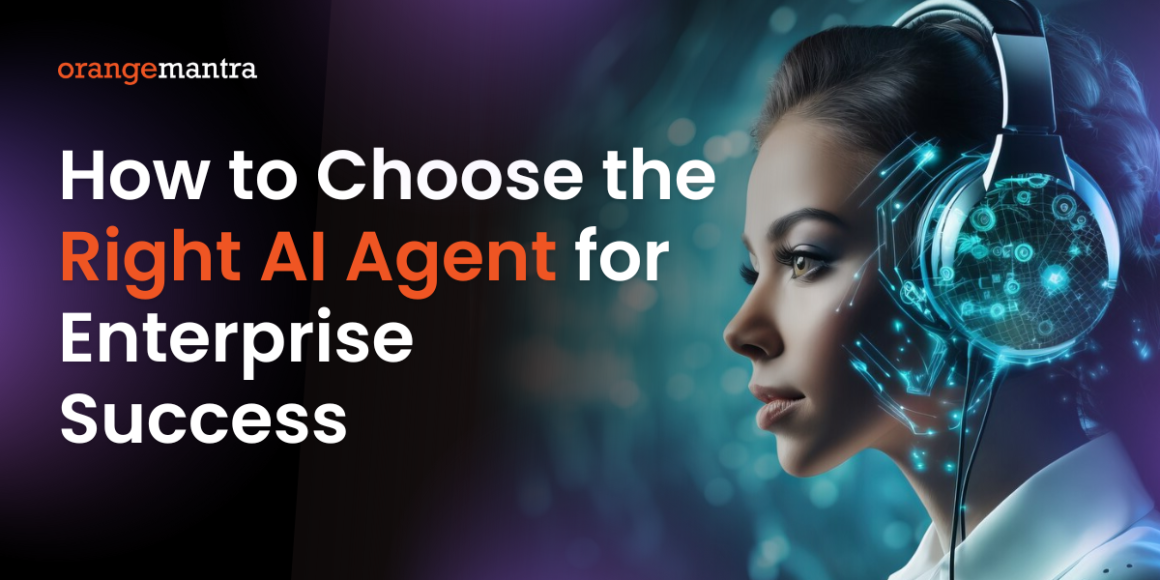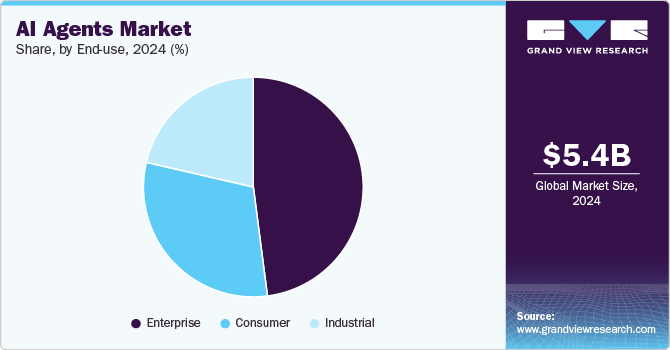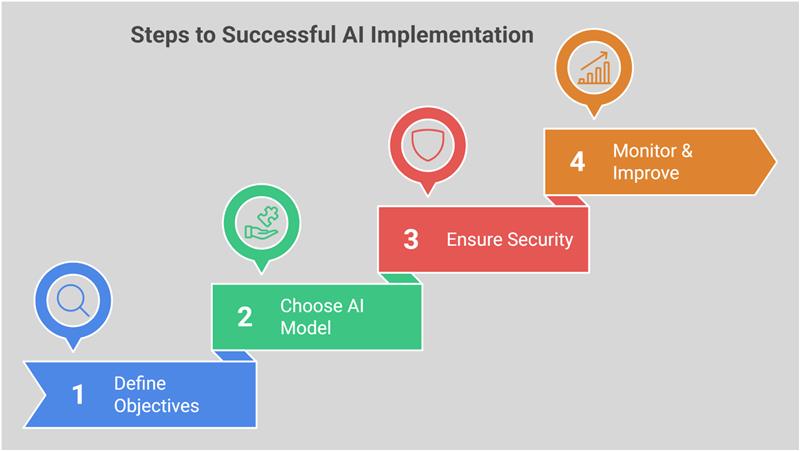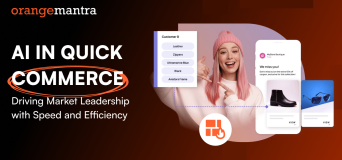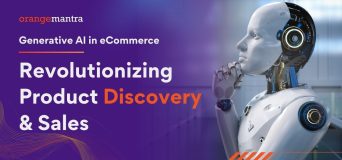Is your mind boggled the same way as every other business owner’s? Do you also fall on the side of Team AI or sparking another revolution? Or else you are paving another neutral way apart?
But what if every enterprise wants to increase their efficiency, knowing that they have gaps to fill – especially with rising customer expectations? So, can AI agents do something here? Indeed!
AI agents for enterprises can scale and manage their complex operations. However, it depends on the AI agents you build.
Choosing the right AI agent solution isn’t just about adopting the most advanced technology. Enterprises need to assess how AI agents integrate with their existing ecosystem. If the solution doesn’t align with business goals, it’s not really a solution.
This article is an aim our AI agent development company to share some deeper insights than the usual considerations. You will also be reading how to strategically select AI agents for enterprise.
Personal AI Agents vs Enterprise AI Agents
It’s important to recognize that personal AI agents are designed to be simple and highly efficient at an individual level. But can they handle the complexities of large organizations? No, they can’t.
We will read more about this in detail later. But first, let’s know differences between personal AI agents and enterprise AI agents.
| Feature | Personal AI Agents | Enterprise AI Agents |
| Purpose | Assists individuals with personal tasks like scheduling, reminders, and answering queries. | Optimizes business operations, automates workflows, and enhances productivity. |
| Users | Individuals, freelancers, and small-scale users. | Organizations, enterprises, and large-scale teams. |
| Data Access | Limited to personal emails, calendars, and documents. | Accesses and integrates with enterprise systems like ERP, CRM, and databases. |
| Customization | Limited customization based on user preferences. | Highly customizable to fit specific business workflows. |
| Security & Privacy | Focus on individual data security that is often stored locally or in personal cloud storage. | Enterprise-grade security, compliance, and access control policies. |
| Integration | Connects with personal apps like Gmail, Calendar, and Notes. | Integrates with enterprise software like SAP, Salesforce, and ServiceNow. |
Before reading the “why” and “what” part of enterprise AI agents, look at market size of AI agents for enterprises reported by Grand View Research.
The global AI agents’ market was valued at USD 5.40 billion in 2024. It is projected to grow at an impressive CAGR of 45.8% from 2025 to 2030.
Why Businesses Need Enterprise AI Agents?
Enterprise AI agents integrate across multiple systems something personal AI agents simply can’t offer. Here are the reasons business need AI agent enterprise.
Automating workflows across departments
A major challenge for businesses is handling operations at a scale. As organizations grow, they face inefficiencies caused by manual processes, and other reasons. But enterprises AI agents can solve this.
AI agents in manufacturing, HR, finance, customer service, IT, and other departments can automate repetitive tasks. These intelligent agents have higher accuracy and consistency which is not possible when humans are dealing.
Moreover, AI agents for enterprises can also handle thousands of simultaneous operations. So, by considering all these things we can say AI agents make businesses more agile and scalable.
Process Optimization
Many people think that AI agent or any other automation is just about replacing manual tasks. But the best AI agent is one which makes processes faster, smarter, and more cost-effective. AI agents analyze workflows to find inefficiencies in your system.
Let’s take the example of intelligent agents in BFSI. An AI agent in finance can automatically categorize expenses, detect anomalies, and streamline approvals which reduce human effort and improve accuracy.
Enterprise-Grade Security
One of the biggest concerns for businesses using AI is data security and compliance. Enterprise AI agents are designed with built-in security measures to protect sensitive information. They are not like personal AI tools which store data in consumer-grade systems.
AI agents for enterprises offer role-based access control (RBAC) to prevent unauthorized data exposure. Automated security monitoring to detect threats and prevent data breaches is also a very helpful use case of AI agent app.
Connecting with CRMs, ERPs & Other Enterprise Applications
Businesses don’t operate in isolation. Instead, they rely on multiple software systems to manage customers, operations, finance, and employees. An enterprise AI agent provides value to your organization as it gets connected to your business software.
You can connect your enterprise AI agents with CRM systems like Salesforce and HubSpot to personalize customer interactions. Moreover, artificial intelligence agent integration can also be done with:
- ERP platforms like SAP and Oracle to optimize supply chain and financial operations.
- IT service management (ITSM) tools like ServiceNow to automate IT support and security.
- HR and payroll systems to manage recruitment, employee records, and salary processing.
Read more: Why and How to Build AI Agents for Small Business?
Know These Before Choosing an Enterprise AI Agent Solution
Selecting the right enterprise AI agent solutions is a strategic decision that impacts business outcomes. Here’s what you need to make sure before investing in an enterprise AI agent platform:
How easy is it to develop AI Agents?
A well-designed AI agent platform should offer a friendly and flexible development environment to accommodate both technical and non-technical users. The ideal AI agent platform provides:
Low-Code/No-Code AI Development – Business users and domain experts can build AI agents without deep coding expertise.
Pre Built Templates & Frameworks – Have ready-to-use AI workflows and automation scripts that accelerate development.
Drag and Drop Functionality – It simplifies AI agent creation more and makes it easier for business teams to design workflows.
Can AI agent app adapt to your needs?
The effectiveness of an AI agent for enterprise depends on the underlying AI models it uses. A flexible AI agent solution will keep your businesses adaptive and scale as AI technology evolves.
Your enterprise AI agent platform should provide:
Support for Multiple LLMs – Should have compatibility with OpenAI’s GPT, Google Gemini, Anthropic Claude, and other leading AI models.
Custom Model Fine-Tuning – Adapt your AI model using your enterprise data for industry-specific accuracy.
Prompt Engineering Capabilities – Optimize AI responses for higher accuracy, relevance, and contextual understanding.
Also Read: Are LLMs and Generative AI the Same?
How well does it fit your tech stack?
AI agent for enterprise is only as powerful as its ability to integrate with your existing enterprise systems. It should connect with your existing systems for smooth automation and efficient workflows. Key features of AI agents for enterprise to look for:
API & Webhook Support – AI agents that can interact with third-party applications, CRMs, ERPs, and databases. Otherwise, what’s the use of it?
Cloud & On Premise Compatibility – Provides flexibility in deployment based on your security and compliance needs.
Automation Framework – AI agents should enhance existing robotic process automation (RPA) and business process automation (BPA) strategies.
Is It Safe & Compliant?
Security is non negotiable whether it’s at personal level or enterprise level. Your AI agent will handle sensitive business data. You should look for:
Data Masking & Privacy Controls – Prevent unauthorized access to sensitive data.
AI Monitoring & Logging – Maintain an auditable trail of AI interactions for compliance and accountability.
Bias & Risk Mitigation – Implement controls to reduce biases and ensure fair AI decision-making.
Orchestration & Collaboration
For AI to deliver real business value, multiple agents must coordinate tasks, interact with humans, and adapt to dynamic workflows.
Multi-Agent Orchestration – It makes your AI agent collaborate on complex tasks by breaking them down into manageable components.
Human-in-the-Loop (HITL) – Allow manual intervention in critical decision-making scenarios.
Real-Time Task Monitoring & Optimization – Make sure AI agents operate efficiently, with performance analytics and workflow adjustments in real-time.
Note: AI agent development cost is also very important to know before investing. Contact us to know our cost for an AI agent.
Conclusion
It is important to choose the right AI agent for your enterprise to make your operations smooth, boost productivity, and keep your data secure. A well designed AI agent integrates flawlessly with your systems and adapts as your business grows.
By focusing on adaptability, security, orchestration, and integration, enterprises can have AI agents that work for their business growth.
If you’re ready to begin your AI agent development journey and manage large scale operations, custom enterprise AI agents are the way forward. Even if you have no prior experience with AI technologies, that’s okay – start by finding a trusted AI agent development company.
A reliable partner can help your business unlock the full potential of AI agents. Ready to transform your enterprise with AI automation? Start today. Start with OrangeMantra.
FAQ
Q1. What is an AI agent?
An AI agent is an intelligent software program that automates business processes, interacts with enterprise systems, and helps you make informed decisions.
Q2. How do AI agents improve enterprise productivity?
AI agents streamline workflows, reduce operational costs, and improve customer experience by automating repetitive tasks and providing intelligent insights.
Q3. What factors should businesses consider when choosing an AI agent?
There are many factors that you should consider before starting your AI agent development company. Some of them which we see as key factors include AI model flexibility, enterprise integration capabilities, governance, security measures, and orchestration features.
Q4. Can AI agents replace human employees?
No, AI agents work alongside human employees by automating tasks and providing support. The main tasks of an AI agent are to help humans to focus on strategic decision-making.
Q5. What is an Enterprise AI Agent?
An Enterprise AI Agent is advanced AI software that helps businesses automate tasks, make decisions, and improve efficiency by working with enterprise systems like CRM, ERP, and IT tools.
